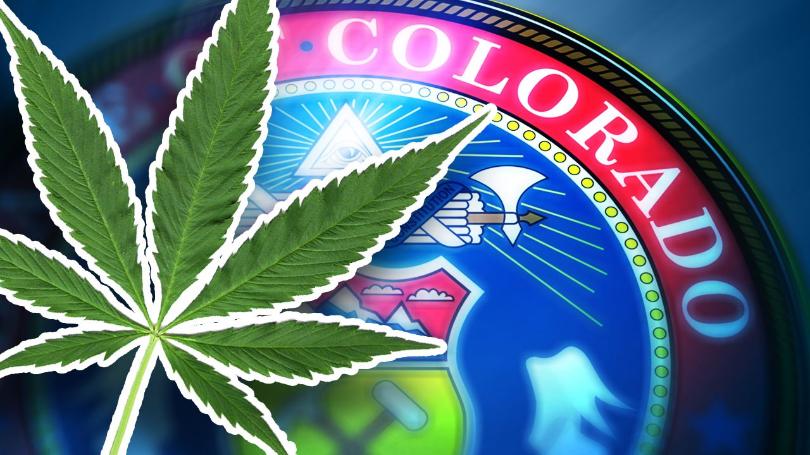Colorado has had a long and complicated relationship with medical cannabis. Colorado’s medical marijuana laws are some of the most permissive in the country, but they’re also among the most confusing.
Colorado’s medical cannabis laws allow for the formation of Colorado non-profit medical cannabis dispensaries. Dispensaries must be Colorado-licensed businesses that sell medical cannabis to Colorado Medical Marijuana Registry ID cardholders.

Colorado’s medical cannabis laws are constantly evolving, and the state is currently working on implementing new regulations around licensing, testing, and labeling medical cannabis products. For more information on Colorado’s medical cannabis laws, please visit the Colorado Department of Public Health and Environment’s website.
Colorado’s First Medical Marijuana Law: Amendment 20
Colorado voters approved Amendment 20 in 2000, which made Colorado one of the first states to legalize medical cannabis, but the laws surrounding it have been in a constant state of flux ever since. Colorado’s medical cannabis laws have evolved over the years, and the state now has a well-regulated system for dispensing and regulating medical cannabis.
Colorado Medical Marijuana Code
Colorado Medical Marijuana Code establishes Colorado’s laws regarding medical cannabis. Colorado Medical Marijuana Code is Colorado’s first attempt to create a comprehensive set of laws governing the use, cultivation, and distribution of medical cannabis. Colorado’s Medical Marijuana Code was enacted in 2000 and was subsequently amended in 2010.
The Colorado Medical Marijuana Code contains a number of provisions regarding the use and cultivation of medical cannabis. Colorado’s Medical Marijuana Code allows patients to possess up to two ounces of medical cannabis, and to cultivate up to six plants for personal use. Colorado’s Medical Marijuana Code also establishes a system of medical cannabis dispensaries, which are required to be licensed by the state in order to operate.
Colorado’s Medical Marijuana Code has been successful in creating a regulatory framework for the medical cannabis industry in Colorado. However, the Colorado Medical Marijuana Code has been criticized by some for its lack of clarity and for its failure to address some important issues, such as taxation and water rights. Colorado’s Medical Marijuana Code is still a work in progress, and will likely continue to evolve as the medical cannabis industry in Colorado grows and changes.
Amendment 64
Colorado Amendment 64 was a Colorado ballot measure that appeared on the November 6, 2012, general election ballot. The amendment proposed adding a section to the Colorado Constitution concerning personal use and regulation of marijuana. Amendment 64 Colorado passed, making Colorado the first U.S. state to legalize the possession and use of marijuana for people 21 years of age and older. Colorado’s Amendment 64 resulted in Colorado becoming the first state in the nation to allow for the legal recreational use of marijuana. Colorado’s Amendment 64 was modeled after Washington’s Initiative 502. Colorado’s amendment 64 allows for personal possession of up to one ounce of marijuana and permits the cultivation of up to six marijuana plants. Colorado’s amendment 64 also contains provisions for the regulation and taxation of marijuana businesses. Colorado’s amendment 64 has been credited with stimulating Colorado’s economy and generating new jobs. Colorado’s Amendment 64 has also been associated with an increase in Colorado’s tax revenue.
Colorado Marijuana Driving Laws
Since Colorado legalized medical cannabis in 2000 and recreational cannabis in 2012, there has been an ongoing debate about the impact of marijuana use on driving. While some studies have shown that marijuana use can impair driving ability, there is still much disagreement about how Colorado’s cannabis laws should be applied to driving.
Currently, Colorado does not have a specific blood limit for THC, the main psychoactive compound in marijuana. However, Colorado law does state that drivers can be charged with DUI if they are “impaired to the slightest degree” by marijuana or any other drug. This means that Colorado police officers have a great deal of discretion when it comes to determining whether or not a driver is too impaired to be behind the wheel.
Regulating Marijuana Concentrates
Titled “Regulating Marijuana Concentrates,” the law was aimed at curbing teen cannabis abuse. Colorado lawmakers wanted to set a limit on the amount of THC that could be present in a product. Colorado’s medical cannabis patients and businesses were largely against the proposed changes, as it would limit the availability of high-potency cannabis products and make them more expensive.
